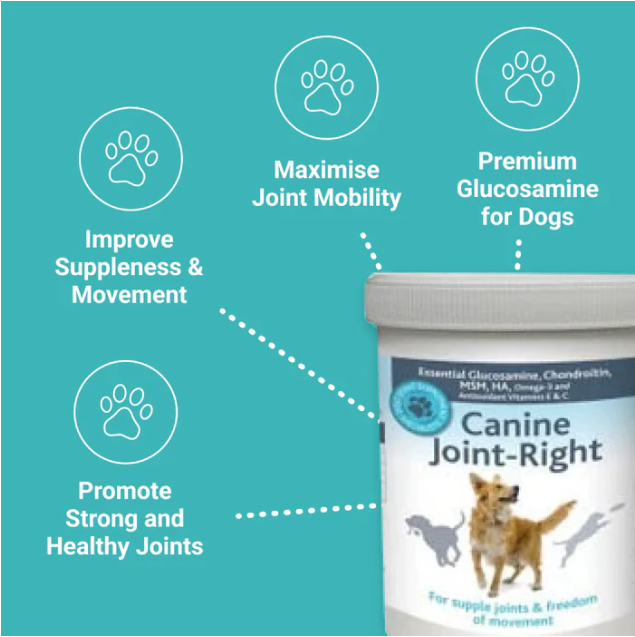Excellent News For Picking Kidney Failure In Dogs
Excellent News For Picking Kidney Failure In Dogs
Blog Article
Omega-3 Fatty Acids For Cats And Dogs What Can They Do To Improve Joint Health?
Omega-3 fatty acids, in particular EPA (eicosapentaenoic Acid) and DHA docosahexaenoic Acid play a vital role in maintaining joints' health in dogs and cats. This is why they're beneficial:
Anti-inflammatory Properties
Reduce inflammation:
Function Omega-3 acids are powerful anti-inflammatory agents. They block the production of pro-inflammatory cytokines and eicosanoids that contribute to inflammation.
Omega-3s can help reduce inflammation of the joints. This can alleviate swelling and pain that is associated with arthritis. Pets can move more easily, increasing their overall quality of living.
Joint Lubrication and Health
Enhancement of Joint Lubrication:
Function The omega-3 fatty acid helps to maintain the health of the synovial fluid, which helps to lubricate our joints.
Benefits: Better lubrication leads to smoother joints, less friction and less wear on cartilage. This is particularly beneficial for pets who have joint problems or may develop one.
Cartilage Protection and Repair
Cartilage Protection:
Function: Omega-3s assist in maintain the health of cartilage through lowering enzymes that destroy cartilage.
Benefits : Keeping cartilage healthy helps keep joints healthy and reduces the progression of osteoarthritis.
Immune System Support
Immune System Regulation:
Function: The omega-3 fatty acid can help modulate your immune system and promotes an immune response that is in balance.
Benefits of having a healthy immune system This can help protect joints from joint inflammation and damage through the regulation of the immune system.
Comfort and Mobility Improved
Better Mobility
Omega-3s help reduce inflammation and maintain joint structures to help pets move more easily.
Benefits: Pets with health issues, such as older pets or those suffering from arthritis, often show improved mobility and less pain which leads to a more active and comfortable life.
Additional Health Benefits
Overall Health
Function: Omega-3 Fatty Acids also promote cardiovascular, skin and hair health in pet.
Benefits : A healthier pet will likely be more energetic and maintain better joints over time.
Use and Considerations
Dosage and Administration: The correct dosage of Omega-3s depends on the size of the pet, weight, and specific medical conditions. Always follow your veterinarian's advice or the instructions for the product.
Omega-3 sources: Fish oil supplements that are of good quality can be a great source of EPA, DHA and other omega-3s. Make sure to select products that are specifically designed for animals in order to ensure their safety.
Omega-3 supplements have a generally beneficial effect for pets. However, some may develop gastrointestinal issues and/or fishy breath. To avoid any adverse effects, begin with a small amount and gradually increase the dose.
Conclusion
Omega-3-fatty acids have an impact positive on joint health for pets and dogs. Their anti-inflammatory properties, their ability to enhance joint fluidity, protect cartilage and support the immunity system. This results in better joint functions and reduced pain. Regular supplementation will improve mobility of pets and promote an active and healthy lifestyle. View the most popular my website probiotics for dogs for more examples including pet health supplements, pet passionflower supplements, pet supplements for pets with weak bones, pet supplements for pets with fear of injury, pet skin and coat care, pet supplements for pets with fear of handling, pet cognitive supplements, canineceuticals and more.
Astragalus Can Help Prevent And Treat Kidney Failure As Well As Kidney Failure In Cats And Dogs.
Astragalus is a plant that is used in traditional Chinese medicine, has shown potential benefits for managing kidney failure in dogs and cats due to its antioxidant, anti-inflammatory and immunomodulatory properties. Astragalus is a potent herb with many advantages.
Anti-inflammatory properties
Reduce Inflammation
Astragalus is rich in anti-inflammatory substances such as saponins.
Benefits Through reducing inflammation you can slow down kidney damage progression and lessen the symptoms. Additionally, you will improve kidney function.
Antioxidant Effects
Reduced Oxidative Stress
Astragalus contains powerful antioxidants that neutralize the free radicals that cause cell damage.
Astragalus benefits include: By reducing stress oxidative, it helps protect the kidney cells from damage. This helps improve kidney health and slows the development of illnesses.
Immunomodulation
Immune System Support:
Astragalus improves immune system function to boost its effectiveness to fight off infections and reduce autoimmunity.
Benefits A balanced immune response can decrease autoimmune reactions and help prevent infections that could result in kidney disease in some animals.
Improved Kidney Health
Improvement of Glomerular Filtration Ratio (GFR)
The ability of Astragalus to enhance kidney function has been researched.
Benefits: Improved filtration can aid the kidneys in removing waste products more effectively which can reduce symptoms of kidney failure and improving general health.
Anti-fibrotic Effects
The prevention of kidney fibrosis:
Astragalus has anti-fibrotic properties that have been shown to reduce the formation or scar tissue within the kidneys.
Benefits: Reducing the fibrosis will help maintain the health of kidney tissue. This is crucial for maintaining kidney function.
Cardiovascular Support
Help for Cardiovascular Health
Function: Astragalus can help improve the health of your cardiovascular system by promoting the heart and blood pressure to be healthy.
Benefits: A better cardiovascular health can lessen the stress on kidneys and improve overall well-being. This is crucial for animals suffering from kidney problems.
Diuretic Actions
Urine Promotion of Flow
Astragalus is a mild diuretic which help increase urine flow. It also promotes the elimination and removal of waste products.
Benefits: Improved flow of urine aids in maintaining kidney health through decreasing toxins, balancing fluids and regulating fluids.
Use and Considerations
Dosage: The dosage depends on your pet's weight, size, and requirements for health. Your veterinarian's advice is essential, as they can advise you on the dosage and type of Astragalus that's most suitable for your pet (e.g. capsules and tinctures, or powder).
Quality and Origin: Make sure to use top-quality, tested Astragalus supplements to guarantee the safety and effectiveness of your pet. It is recommended to choose products specifically formulated specifically for pets.
Astragalus may cause stomach upset in certain pets. You can reduce side effects by starting at an initial dose, and then gradually increasing the dosage. It is important to ensure that a veterinarian is monitoring your pet on a regular basis to observe how they respond to the supplement. If necessary, the dose can be altered.
Conclusion
Astragalus is a beneficial supplement to help manage kidney disease in cats as well as dogs. Its anti-inflammatory properties, antioxidant properties, immunomodulatory properties, and antifibrotic qualities help to improve kidney function as in overall health. Regular use of Astragalus, under the guidance of a vet, can help slow the progression of kidney disease, improve the quality of life and enhance the well-being of pets suffering from kidney disease. Check out the top rated click this link for collagen for dogs for site examples including pet allergy supplements, pet arthritis supplements, pet supplements for pets with fear of music, pet supplements for shelter pets, pet liver supplements, pet supplements for active pets, organic pet supplements australia, pet supplements for pets with luxating patella and more.
Apple Cider Vinegar Is Effective In Treating Yeast Infections In Cats As Well As Dogs.
ACV is frequently suggested by vets as a natural cure for yeast infections. ACV is acidic and may produce side effects. While some anecdotal or scientific evidence suggests its advantages, it is best to take it under the supervision by a veterinarian due the possibility of adverse effects and its acidic nature. ACV can help treat yeast infections.
Antifungal Properties
Acidic Environment
ACV's acidity ranges from 2.5-3.0 pH. This environment can be inhospitable for yeast to flourish.
Benefits The application of ACV diluted ACV topically or incorporating it into your bathwater of your pet may decrease the growth of yeast on the skin and in ears.
Skin pH Regulated
Balancing Skin pH:
The function: ACV is believed to assist in the balance of pH levels, which may help support a healthy skin barrier and reduce yeast growth.
Benefits: Keeping a good pH balance on the skin may help to prevent yeast infections and promote overall health of the skin.
Anti-inflammatory effects
Reduced Inflammation
ACV's mild anti-inflammatory properties are its main function.
Benefits: Reducing swelling can reduce symptoms of yeast infections, such as irritation, pain, and the appearance of redness.
Support for Digestive Health
Internal Use
ACV can improve digestion, and help balance the gut bacteria after ingesting.
Benefits - A healthier digestive tract can slow yeast growth by supporting your overall immune system and microbial balance.
Use and considerations
Topical Application - dilute ACV (typically 1 part ACV to 2 parts of water) by adding water. Apply as a spray, rinse, or ointment on affected areas. Do not apply ACV directly to open wounds on the skin or to sensitive regions.
Internal Use: Always consult a veterinarian before using it in the body. ACV may be administered to infants in small doses and should be extremely dilute (e.g. a teaspoon or a tablespoon per cup of water).
Monitor for signs of irritation or allergic reactions, when applying ACV on the skin. Discontinue use if any negative reactions develop.
Consultation with a Veterinarian: Prior to using ACV to treat yeast infection in animals, it's important to consult with a veterinarian. The veterinarian can advise you on the best dilution method, how to apply it and any possible risks depending on your pet's health.
The final sentence of the article is:
Although apple cider may provide some benefits in managing yeast infections in dogs and cats However, the use of this vinegar should be under veterinarian supervision and with cautiousness. ACV's acidic nature can help create a toxic conditions for yeast to grow on skin and ears as well as provide some mild anti-inflammatory properties. To avoid irritation and adverse reactions, it's important to apply ACV with caution. Veterinarian guidance assures that ACV is safe and effectively as part of a complete treatment program for yeast infections in pets. See the recommended dogs supplements for joints for website tips including pet eye supplements, pet ashwagandha supplements, pet supplements for pets with respiratory disease, pet supplements for pets with fear of eye drops, pet passionflower supplements, pet chondroitin supplements, pet coat supplements, pet multivitamins and more.